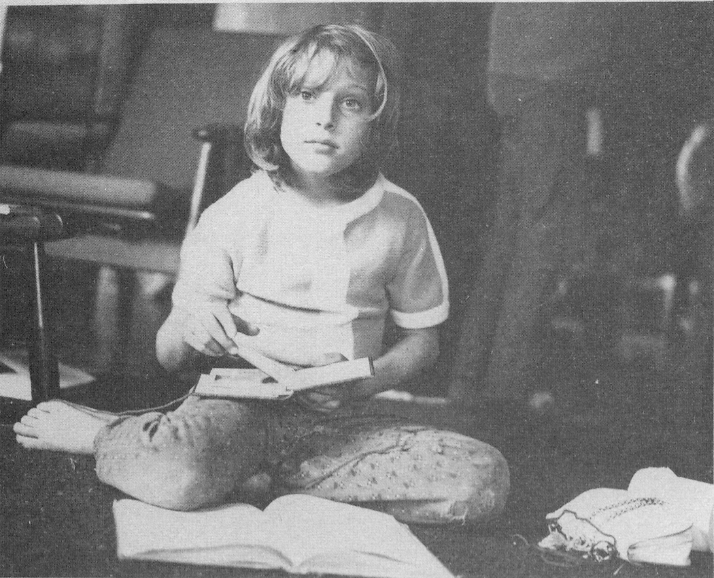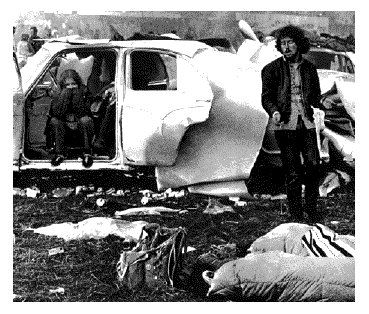Growing Up in a Sixties Commune
Sandra Eugster
(Academy Chicago)

One example is an extended discussion as to whether the commune, there on their farm in the Virginia countryside, in 1972, should buy a pig. A four or five or six hour meeting was devoted to the moral question of taking on animals which would sooner or later have to be slaughtered. Should Nethers be responsible for raising an animal "to then kill it to eat it?" Suzanne asks.
"Everytime you eat a hamburger you're eating an innocent animal that was killed," Tim pointed out.
"Pigs don't have feelings anyway," Jeanie offered. "Not like we do."
"Yes they do!" "How would you know?" "What are you talking about?" cried Erica, Ellen and Bob simultaneously.
The meeting deteriorates into a long discussion about whether pigs have the same feelings as fish ("if we had a trout stream on the farm") and concludes with an uneasy agreement to keep the pigs one of the members has already bought, anyway. No one even thought of keeping them as pets which would have been my vote.
At each meeting, there is the "check-in:" going around the room and giving everyone a chance to say what they are feeling, e.g., "I feel really in tune with you all, and I appreciate all the positive energy going around" and "I just want to say that you all are really fine people and all the love around here is far out." Oy, vey.
There is even a page or so given over to the required language of the times: "head-trips," "energy," "good vibes," "bad vibes," "heavy," "blissed out," "wow," and the ever present but tiresome "far fuckin' out."
Eugster conveys the world of the 60s and 70s in such detail because she was there for ten years or so, starting at age seven (her mother was the prime mover in establishing the commune). There are chapters devoted to the hard work, the tensions, the diversions, the music, dancing, games, the silliness ... and the coming and going of the loonies that always turn up in these places.
I can't think of another book that captures, so precisely, the life of the various "farms" and city communes that appeared in that era. And there is an extra dimension for Eugster, the contradictions between life at Nethers and occasional weekends with her proper father, in his clean house, with its "driveway, graciously lined with maples on either side," a pond "with weeping willow trees, gracefully trailing fingers into the water by the big dock." It was a house that was spotless, "where everything worked."
 Compare this to Nethers with dogs tracking through everything, the goats, the twenty or thirty people in various states of cleanliness or clearness, the free-floating chaos, an outhouse (that once caught on fire, the methane burning for three days), the inevitable ecstasy and drudgery of living on twenty-two acres in the rain and dust and sweat and stink.
Compare this to Nethers with dogs tracking through everything, the goats, the twenty or thirty people in various states of cleanliness or clearness, the free-floating chaos, an outhouse (that once caught on fire, the methane burning for three days), the inevitable ecstasy and drudgery of living on twenty-two acres in the rain and dust and sweat and stink.
There was one character who had to scream, at top volume, once a day. There was a man who ate grasshoppers (live). There was a woman who seemed on the verge of tears at all times. Overriding everything else, there was Carla, Eugster's mother, a continuing pain for a sensitive, puzzled, book-mad, tom-boy daughter who, apparently, wanted nothing more than to be in her father's proper home with a good hot bath. (One of the most sensual passages in Notes from Nethers treats of her first bubble bath at her father's. Her raggedy jeans and tee-shirt were left in a pile just outside the door; he washed her hair just like when she was seven; the bath-water had to be changed twice; the next day he bought her new clothes.
She was entranced by this graceful life, his new wife Elaine, the carefully prepared meals, the visits with other proper friends.
She went there to get away from Nethers five or six times a year. And during every one of her visits, at night, she wet her bed.